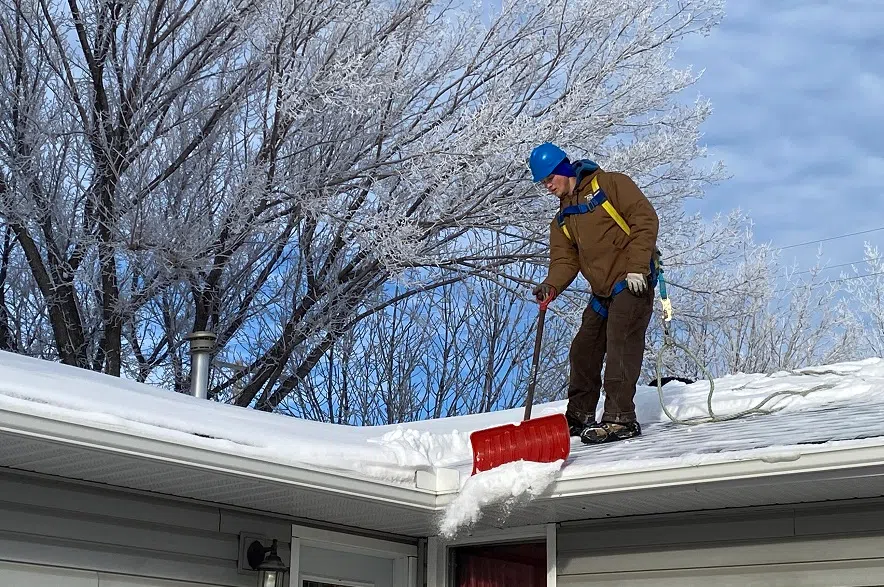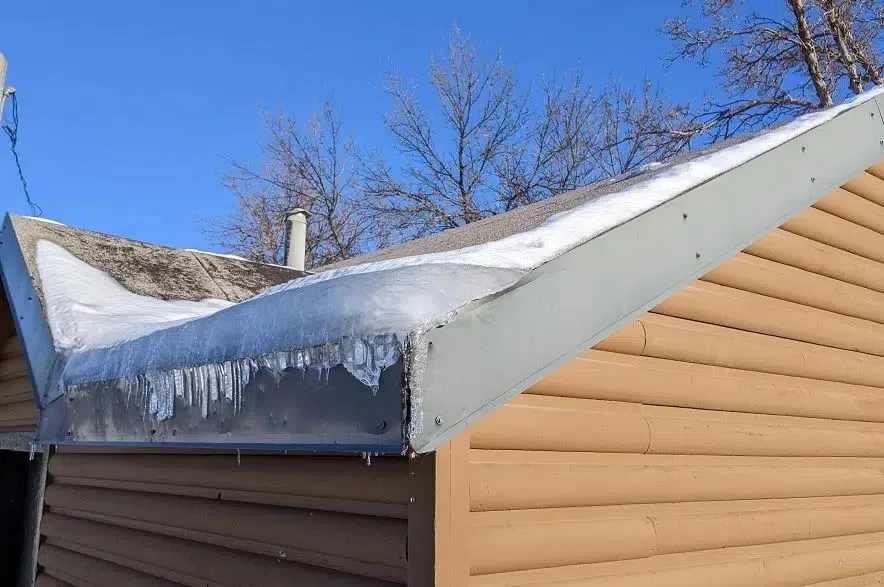A Saskatchewan warm-up has roofing companies warning residents about the potential of ice dams forming on the roof of their homes.
Ice dams are formed after a freeze-thaw cycle. It can cause ice build-up in eavestroughs, not allowing melting snow to pass through.
“You’ll start seeing a lip of ice building up at the edge of your roof,” said Henry Greenberg, owner of Guardian Roofing and Exterior. “The snow just keeps getting higher and higher at that point.”
He said ice dams can be anywhere between two inches to a few feet tall.
Read more:
- Cancel that cold: Saskatchewan’s weather expected to warm by mid-week
- Clear your roof before ice dams cause damage: SGI
- Roofers warn that warm weather could lead to formation of ice dams
As the name implies, the ice dam traps water on your roof.
“The snow that’s sitting on top of your roof is melting on the bottom side. It’s (the snow) getting the hot air from your attic and once it gets into that cold area where your soffit is, then it’s starting to freeze again,” Greenberg said.
If the water isn’t able to reach the eavestroughs and go down the downspout, it sits on your roof and Greenberg said this can cause some interior damage.
“You’re going to start seeing some water spots on your ceiling,” he said. “You may not see anything, you may just have moisture building up in your attic, and eventually that’s causing wood rot to happen.”
Greenberg said this would eventually lead to a mold build-up in your house.
He said if you notice an ice dam forming on your roof, and you don’t have a fear of heights, you can work on it yourself.
“You can clear off your vents and make sure that you have adequate air leaving your attic,” Greenberg said. “The idea is that your attic space is the same temperature as the outside air.”
Greenberg said you can always call a professional if you aren’t comfortable going on your roof when it’s snowy.
“Removing the snow from your roof is generally where we get involved,” he said. “Sometimes we have to get to the extent where we’re actually steaming off the ice dams to avoid any damage to the shingles.”

A roofer removing snow from the valley of the roof, to prevent ice dams from forming. (Will Mandzuk/650CKOM)
The steamer is like a pressure washer that shoots out steam.
Greenberg said he’s also seen others use ice melt, or cat litter to wear down the ice.
Guardian Roofing and Exteriors see around three to four calls a week regarding ice dams and expect that to go up while the temperatures warm up.
Ice dams can cause serious issues for homeowners.
Older homes in general or homes built before the 1980s are more prone to seeing ice dams compared to houses built after the 80s.
The valley of a roof — the area where wings of a house or a garage and a house connect — is the area that has the highest risk of ice damming.











